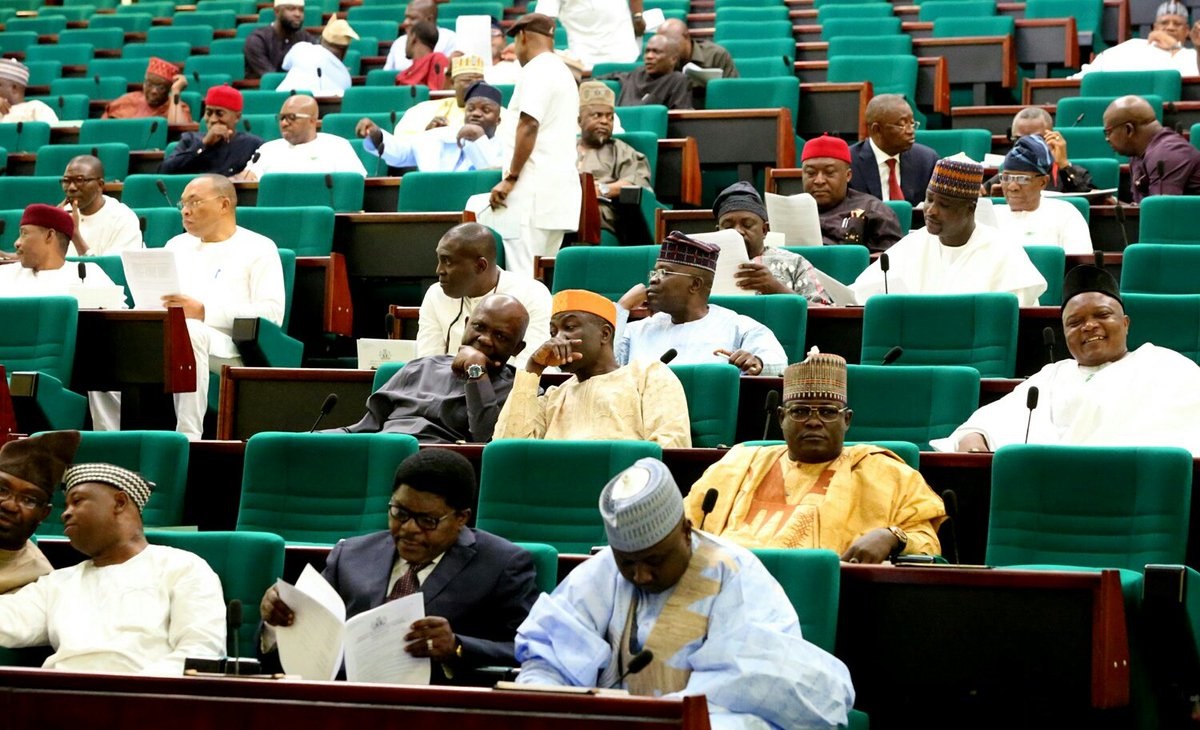When it dawned on him that he was on his way to losing his bid for re-election as governor of Ekiti State in 2014 before the official pronouncement by the electoral umpire, Dr. John Kayode Fayemi delivered his concession speech to the people of Ekiti State–and the world at large–precisely on Sunday, June 22, 2014. In the speech, the then outgoing governor said, among other things, that: “Indeed a new sociology of the Ekiti people may have evolved. However, the task of understanding how the outcome of this election has defined us as a people will be that of scholars. For us as an administration and a cadre of political leaders in Ekiti State, we have fought a good fight, we have kept faith.”
For those who has the graphic, if not acute understanding of what politics must produce vis-à-vis the understanding of its overarching importance as nothing but a tool to enhance the citizenry in different facets of their lives, the election couldn’t have been anything less than confounding. For those who witnessed both the macro and micro derivatives of the dividends of democracy that the then Fayemi government ushered into Ekiti State for the first time in its history, but had arrived at their wits’ end as to what to make of the 2014 governorship election they knew, instinctively, that Fayemi couldn’t have lost going by his superlative accomplishments that even the blind could see, and Fayose (then governor-elect) couldn’t have won considering his egregious and criminal past in his first term, that Fayemi handed over the puzzle that the election threw up to sociologists and other scholars to make sense of in that concession speech was the soothing balm they needed for their tortured souls.
But by the time the Independent National Electoral Commission (INEC) finished its collation exercise and announced its official results, Dr. Fayemi had lost the election in all the 16 Local Government areas of the state. The electoral loss was soon compared to a football match from which a new electoral coinage known as 16-0 emerged. But Ayo Fayose’s electoral victory soon became pyrrhic as Nigerians and the rest of the world were later to be informed about the gory details of what transpired during the governorship election that has now taken its place among the pantheon of the country’s greatest electoral infamies. It was one of the highly orchestrated electoral heists in the nation’s electioneering history that happened under former President Goodluck Jonathan’s watch.
While one may not know for sure if the nation’s sociologists and other scholars have since picked up the gauntlet that Fayemi threw down in the aftermath of that 2014 governorship election debacle by way of some well-researched papers and other printed matters, it is important to go down this memory lane because a new sociology of the Ekiti people may, once again, have crept up upon us even when that of 2014 is yet to be adequately interrogated. It is also important to travel down this path in order to juxtapose a state that was once came to serious grief in the hands of just one man where the chaos and sheer brigandage of that era were so gripping and suffocating with the seamlessness of the just concluded 2019 electoral process in the same state in which the voters overwhelmingly rewarded the All Progressives Party (APC) that it cleared all the seats in both the national and state legislative chambers—-also fundamentally because of one man. It was a quiet but profound revolution in electioneering that needs proper contextualization.
Advertisement
Since this new extreme in the state’s chequered electoral history should be deferred to scholars (and yours sincerely is not one) to unravel–if they ever will–one would be remiss if a thing or two is not said about the factors that may have necessitated the voters’ collective desire to swing the electoral pendulum into this new extreme in the just concluded general elections in which a new, true score of 26-0 has now displaced a false 16-0 score that never truly happened in the first place. And what undergirded this new score–it seems to me–is the leadership style as well as the persona of the man that sits atop, if not also at the epicenter of the governance structure of Ekiti state as well as its politics, Governor Kayode Fayemi. But in order to understand his leadership style and persona as well as situate these two characteristics in their proper contexts, we may have to take a quick excursion into the run of play that gave birth to Fayemi’s second coming, most importantly his emergence as his party’s flagbearer from probably the most bitterly fought election primary since the beginning of the Fourth Republic.
It would be recalled that the APC’s primary had to be conducted twice not because of any lack of preparation on the part of the party to conduct a credible election or the absence of representation of the electoral body as required by law, but for the fact that some aspirants, out of the more than thirty (most of whom couldn’t guarantee the votes of members of their nuclear families, let alone made any appreciable showing from the general populace) deliberately disrupted the voting process through hired thugs who kicked ballot boxes and scattered the ballots into the field in the full glare of the police when it became clear that Fayemi was coasting towards victory. This necessitated the cancelation. As if this was not enough punishment for a man whose only sin was his decision to throw his hat into the ring just like everyone else, the shouts of “Fayemi, Ole, Fayemi, Ole, Fayemi…” by these hired hoodlums and other roughnecks rented the air that I thought–long and hard–about what he could have stolen. I thought, for a moment that, perhaps, Fayemi’s public denunciation as a thief may be that the elderly woman who gave him a goat on a campaign trail in appreciation of his social security policy dubbed “OwoArugbo” as governor in his first tenure which enabled this widow to engage in animal husbandry (an oxymoronic phraseology) may have reported her goat stolen after all. And that she may have fingered Fayemi as the culprit. And since nobody knew that these two clearly orchestrated but nonetheless humiliating and heart-wrenching experience were just the tip of the iceberg, a bullet that a vast majority of his supporters—-including yours sincerely—-believed had Kayode Fayemi’s name written on it was fired (or was it ‘accidentally discharged?’) during a governorship campaign in the state capital most probably as the final solution to the Fayemi phenomenon. It was that vicious.
It would have been a perfectly legitimate payback time for a typical Nigerian politician with this unsavoury experience after winning the governorship election if he had used the enormous power at his disposal to deliberately and permanently bury, politically,many of his sworn political enemies and run the deadly ones out of town–literally. But Fayemi refused to take the road that many politicians would have found very convenient, if not used as a perfect alibi to extract their pound of flesh. He took the road less travelled by most politicians. After winning the primary election, Fayemi not only visited all the aspirants fora genuine reconciliation, not minding another possible attempt at being blown up by some Improvised Explosive Device (IED) in someone’s front lawn who might still be very bitter and smarting from his loss, but he immediately set up an expansive committee for a comprehensive reconciliation of all aggrieved aspirants, regardless of the patently highly reprehensible roles that of some of them played during his ordeal. Leadership doesn’t come in its very finest any more than this, especially in this clime. The unusual peace that characterized the general elections in Ekiti state could also not have been possible if not because of the inner peace and tranquility that defines the personality of a man at the centre of Ekiti politics. And this calm mien was made manifest during the state’s electioneering process. What this means, therefore, is that a state that earned the moniker of “One Day, One Trouble” in the recent past now shares the same persona with its current chief of state. It also means that it would not only be counter-productive but also foolhardy for anyone with violent inclination who might want to act out this disposition either on his own volition or on behalf of the governor on election days because he’s now instinctively aware that the book would be thrown at him should he be caught, unlike the days of his immediate predecessor when crime and criminality were the only profitable trades in the state.
Advertisement
From the foregoing, one can lay claim to the fact that the “Mr. 100 percent” appellation (in reference to the electoral annihilation of the opposition at the polls in Ekiti state) given to Governor Fayemi by President-elect Muhammadu Buhari has its root in his leadership style as well as a persona that places inordinate premium on what can be described–for want of a better term–as politics of cohesion that the governor is determined should havea pride of place among the true progressive-minded politicians in his state, in his unflinching resolve to build a more perfect Ekiti union.
Odere lives in Iropora-Ekiti. He can be reached at [email protected]
Views expressed by contributors are strictly personal and not of TheCable.







